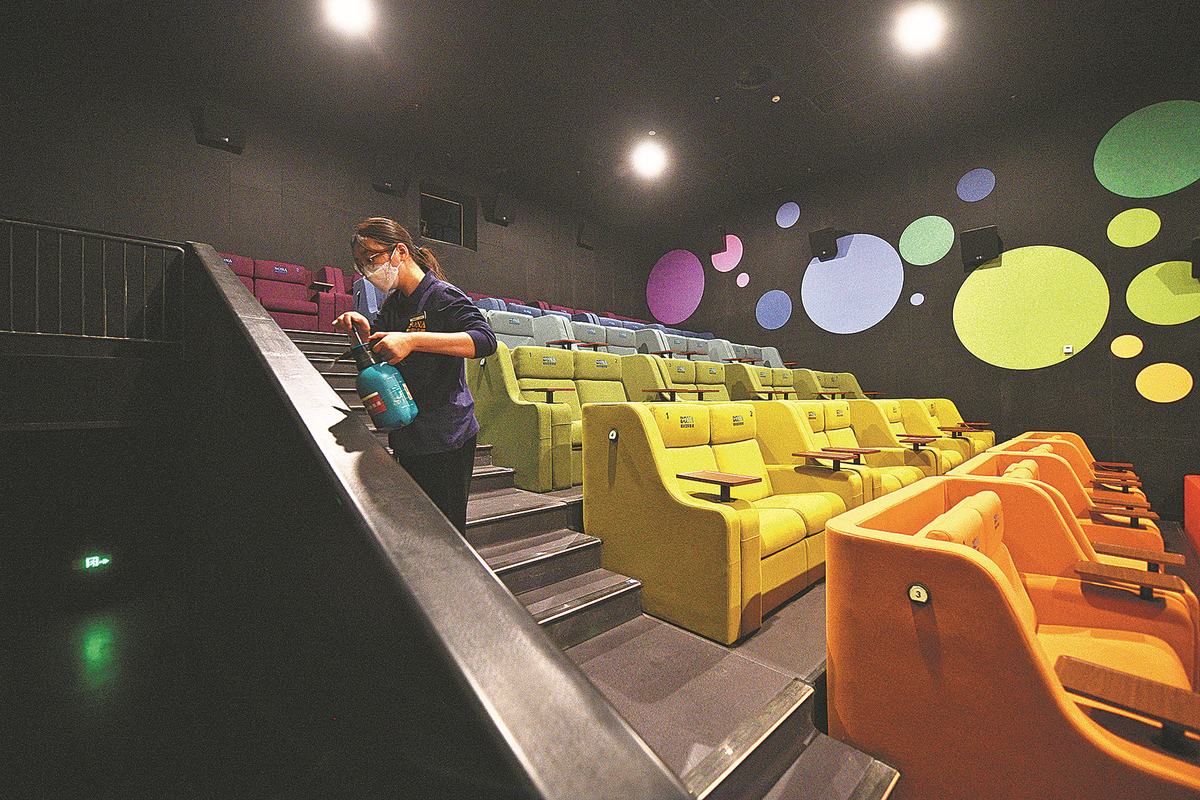Nation embraces fresh approach


Eager to go offline
For the better part of last year, Zhang Hang had given his lectures via a microphone and camera.
Without immediate feedback, as is the case with in-person classes, he felt at a loss to know if his students were keeping up with him.
"Though I don't have to commute to school, I am more prone to be gripped by a sense of total exhaustion after class," said Zhang, a college teacher and freelance interpreter in Beijing. The 29-year-old said the Omicron-fueled outbreaks had disrupted his teaching career.
Students missed on-campus life for the entire spring semester last year, and a spike in cases this winter has toppled his teaching plans.
In November, colleges in many places, including Beijing and Guangzhou, Guangdong province, allowed students to head home more than a month ahead of the winter break to avoid on-campus outbreaks. Students are expected to attend the rest of the classes online and take exams virtually.
There are concerns about cheating. Examinees must turn on their cameras and install special software that can detect if they switch webpage.
"Shifting teaching online is a bumpy adaptation process for all, but even more so for older teachers," Zhang said.
To facilitate the shift, Zhang's school has reimbursed the teachers for the cost of the microphones, cameras, handwriting devices and other gadgets they had to buy. It even rolled out videos featuring popular online lectures in hopes camera-shy colleagues could emulate them.
With the frequent adjustments to COVID rules lately, Zhang was not sure if such skills would be still useful.
"I crave going back to the classroom, offline," he said.
Du Bo, who works for a United States futures company in Beijing, is now expecting to meet his boss, and his boss's bosses in Hong Kong, Singapore and the US, in person.
In the past few years, financial sector workers have become used to doing everything from research to meeting clients over Zoom-powered sessions. They have largely stopped hopping around on business trips among financial hubs such as Beijing, Shanghai, and Guangzhou and Shenzhen in Guangdong province, which were all pounded by frequent outbreaks last year. Also, overseas trips stopped.
"For many of us, working at China-based foreign companies, meeting our foreign bosses in person has been a luxury over the past few years," Du said.
In the early days of the pandemic, China kept domestic cases to near zero and stuck to stringent isolation policies for inbound visitors to prevent the virus from being imported.
First, visitors needed to go through 14 days of centralized quarantine and seven days of home observation, known as "14+7". In June, it was reduced to"7+3" and in November "5+3". On Dec 26, it was announced that no more quarantine will be needed for inbound travelers starting Jan 8.
"When the quarantine-free policy is unveiled, I will travel more often to Hong Kong and Singapore for in-person meetings," he said.
























